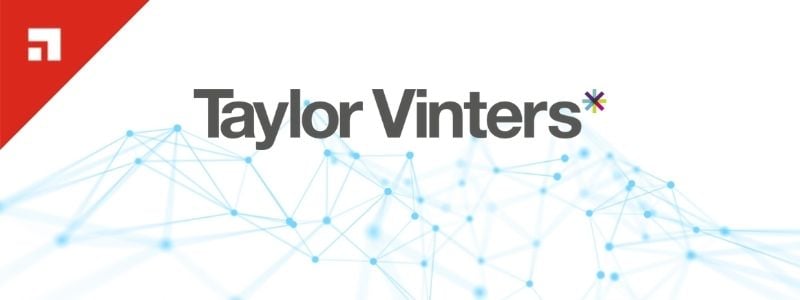Adopting an Agile Workplace for the ‘New Normal’ at Taylor Vinters
There has been a significant amount of change in the IT industry over the past 25 years, from the integration of email, the move to laptops over desktops and the introduction and transition to cloud computing. However, nothing compares to witnessing the rapid change and innovation businesses have adopted throughout the pandemic, including ourselves.
Agility, adapting to survive
One of the critical lessons to learn from the pandemic is the importance of business resilience. According to McKinsey research, less than 10% of companies pre-COVID were resilient and prepared to survive the pandemic. Resilience and agility go hand in hand. The organisations that were able to act quickly and innovate to get the results they needed to survive, are the ones best placed to navigate the pandemic in preparation for the new normal.
Luckily, we were already beginning to focus on a flexible and agile approach to how our people work pre-pandemic. As a global organisation with over 180 staff, 99% of whom operate on corporate-owned devices, and clients across different time zones, we started to provide Taylor Vinters employees with mobiles and laptops for flexible work. Taylor Vinters was a quarter of the way into that process before March and was also looking to transition to a more cloud-based versus on-prem environment, but the pandemic expedited both these needs.
Remote working, people as the perimeter
Like the rest of the world, all our employees are working remotely. Despite the disruption from the pandemic and move to a scattered workforce, our employees are enjoying working from home and feel they are as productive, if not more, at home, and would like to continue a hybrid working environment.
More than 80% of the global workforce similarly does not want to return to the office full-time, ever. When life goes back to normal, we presume we will only be in the office part-time. There is a lot to think about: office leases, amount of square feet and whether we still need that, the requirement for meeting spaces and more. This is true for many industries, including legal.
Growing need for secure flexibility
To successfully support this likely permanent transition to a secure, agile cloud-based remote working environment, any organisation needs the following: ability to tether internet from mobiles to laptops in the case of patchy internet, secure access to business-critical data on all devices and secure access to applications.
At Taylor Vinters, we worked with long term partner Appurity to choose a set of solutions from MobileIron (acquired by Ivanti), and Appurity Connect’s Rubus app that integrates with iManage Cloud. They were a natural choice due to the functionality we needed. Appurity and MobileIron (acquired by Ivanti) were an ideal partnership, as they met all our requirements easily and in the cloud.
Policy and compliance
Like all other companies, due to remote working, we are putting more apps than ever before on employee devices to ensure business continuity. The addition of video conferencing, browsing, SaaS delivery, and even wellness apps has increased exponentially. Employees want apps that give data about how long they have been sat at a screen, or if they are getting their steps or cycling in. Built-in AI screening capabilities of MobileIron UEM (Unified Endpoint Management) ensure that all these applications meet our compliance policies.
With Appurity and MobileIron (acquired by Ivanti), we were able to achieve the functionality we needed, alongside ensuring all these additional apps across all devices were completely secure. With Appurity’s help with their preparation, testing and “gold” build of devices, we were able to complete the project entirely remotely, on all Android Enterprise employee devices over a few weeks. By using zero touch enrolment we were able to automate the onboarding, user provisioning, configuration, application deployment and security and control of Android endpoints for our remote workforce.
Additionally, we opted for multi-factor authentication to connect employees’ mobile devices with their laptops for further security. Application access on laptops can now be authenticated using the biometrics capabilities of a mobile device. This is critical to prepare the firm against the growing increase in data breaches. 2020 is set to be the worst year on record for data breaches with 8.3 billion records being exposed so far. We take security very seriously, but still want to remain agile without compromising security.
Preparation for the ‘new normal’
While we are not completely sure what the ‘new normal’ will look like, we know that the best way to prepare for it is being an agile, but secure business. The security we had from working in corporate offices is gone, and it is not likely to ever be back to the way it once was. Mobile devices like phones, laptops and tablets are increasingly important for workforces to continue business as usual and be proactive, but coupled with the increased amount of data breaches, keeping employees secure in a widened perimeter must be a high priority.
To stay ahead and be prepared for whatever the future brings, IT needs the ability to see, manage and control every endpoint. We can confidently say thanks to the enhanced security on our devices due to Appurity and MobileIron (acquired by Ivanti), we feel fully prepared for whatever the next year brings.
